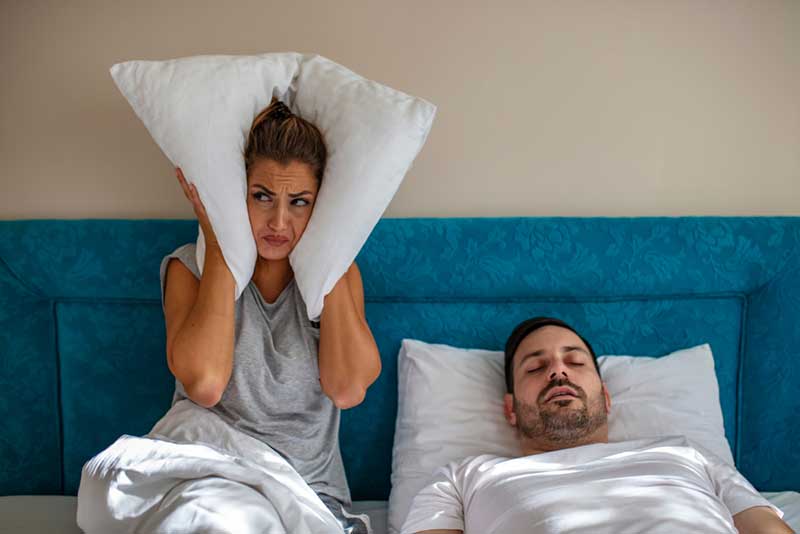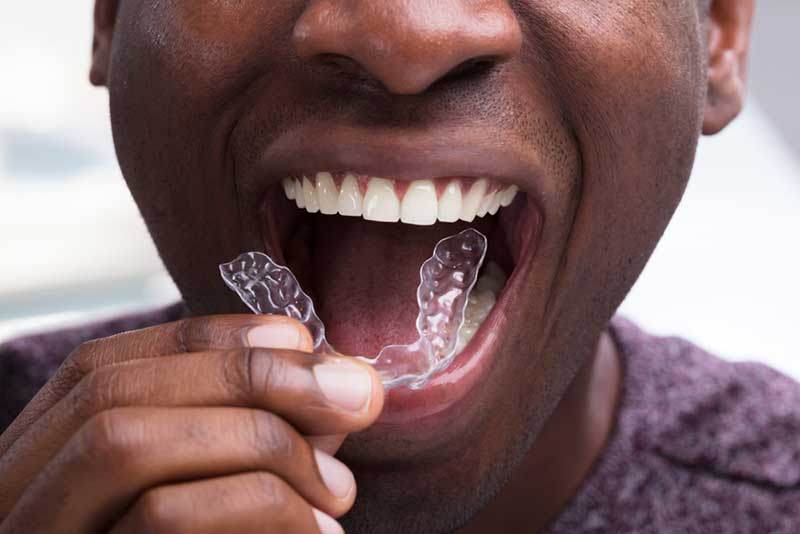
Bruxism: Could You Be Harming Your Teeth While You Sleep?
Maybe you wake up with a strange sensation in your jaw, suffer frequent headaches, experience ear pain, or have a partner who complains about the grinding and popping sounds coming from your mouth throughout the night. These symptoms are likely being caused by a condition called sleep bruxism, which is marked by excessive teeth grinding and jaw clenching during sleep. Some people suffer from day bruxism, too, which involves the same grinding and clenching except that it occurs when a person is awake.
Why Bruxism Is a Harmful Habit
In addition to the obvious downfalls of suffering from frequent jaw pain, individuals who grind their teeth and clench their jaws excessively can experience a whole host of other oral health problems. Unaddressed, bruxism can lead to:
- Worn enamel due to excessive wear and tear
- Chipped or broken teeth
- Receding gums
- Extreme tooth sensitivity
- Flattened teeth
- Loose teeth
- Jaw muscle fatigue
- Tired, sore, tight, and tender jaw muscle
- Headaches, tension headaches, and migraines
- Soreness of the jaw, neck, and face
- Temporomandibular joint (TMJ) disorder
- Limited jaw mobility
- Lockjaw
- Jaw joint popping and clicking
- Interrupted or disturbed sleep


What Causes Bruxism?
Bruxism doesn’t have a clearly defined underlying cause that can be singly or directly addressed. A variety of factors and disorders can lead to bruxism including:
- Certain problems with malocclusion (bite and jaw alignment)
- Sleep disorders such as sleep apnea
- Unmanaged anxiety and stress
Bruxism is also thought to have a genetic component because it tends to run in families. To successfully treat bruxism, all of a patient’s contributing factors must be identified and addressed.
Can Bruxism Be Treated?
Since many factors contribute to bruxism, there isn’t a clear one-size-fits-all treatment, but bruxism can be successfully addressed. Sometimes simply taking steps to reduce stress and mitigate feelings of anxiety before bed can successfully resolve bruxism. Other times, patients require more extensive treatment measures such as mouthguards or orthodontia like braces. In extreme cases, surgery might be the best solution.
If you suffer from the symptoms of sleep bruxism, we recommend scheduling an appointment with Schaffer Dental Excellence right away. We can help you find relief while also preserving your oral health. With a thorough dental examination, Dr. Schaffer can help a patient determine what might be causing his or her bruxism and recommend a unique treatment plan designed to address their personal dental health needs.



